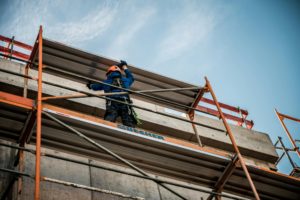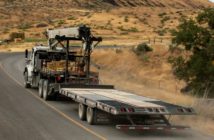Duncan Cotterill Associate Sean Brennan examines a series of decisions issued by the District Court in relation to a PCBU’s responsibility for the health and safety of “other persons”

Under the Health and Safety at Work Act (HSWA), those conducting a business or undertaking (PCBUs) have an obligation to ensure the health and safety of workers, and to ensure the health and safety of “other persons” is not put at risk by the PCBU’s work activity. This is known as the “primary duty.” The reach of the primary duty has been the subject of considerable debate in the relatively short time the HSWA has been enacted, particularly as it relates to the duty to “other persons”.
This article examines a series of decisions issued by the District Court in relation to the “other persons” duty, particularly as it relates to consultants and advisors whose work has health and safety consequences beyond their own workplace. While the most recent cases deal with the obligations of consultants/advisors, the cases contain lessons for all PCBUs.
The Whakaari / White Island prosecutions
The facts of the Whakaari/White Island eruption need not be repeated. It was a tragedy that resulted in the deaths of 22 tourists and tour guides and left 25 injured. Following the eruption, WorkSafe initiated an unprecedented number of prosecutions, laying charges against 13 individuals and PCBUs for their alleged health and safety failings.
WorkSafe New Zealand v National Emergency Management Agency [2022] NZDC 8020
Several organisations including the National Emergency Management Agency (NEMA) were defendants, although they didn’t directly provide tourist activities on the island.
WorkSafe claimed NEMA owed a duty under s [36(2)] to ensure the health of people on Whakaari (both workers and tourists) to ensure, so as far as was reasonably practicable, that their health was not put at risk from work carried out by NEMA. WorkSafe alleged NEMA had breached that duty by failing to properly consult, co-operate and co-ordinate with GNS and Whakaari Management about volcanic activity and did not communicate these risks to the public.
NEMA asked for the charge against it to be dismissed on the basis it was not a PCBU in relation to activities on Whakaari and they did not put any persons at risk on Whakaari. NEMA argued they didn’t carry out any work physically or send anyone to work on Whakaari.
Judge Thomas agreed with NEMA and dismissed the charge stating that their duties only applied to the work they did (its “work activity”) but not to the result of that work (its “work product”). Since NEMA’s work activity did not occur on Whakaari, NEMA did not owe a duty to those on Whakaari.
This case outlines the duty of care that applies to the process of carrying out work activity and indicates if any organisation’s activity did not occur in a specific location, the organisation may not owe a duty to those present in that location.
WorkSafe New Zealand v I D Tours New Zealand [2023] NZDC 19521
WorkSafe also charged Tauranga Tourism Services Ltd and ID Tours New Zealand Ltd, which were involved in ticketing and logistics for Royal Caribbean passengers who went to Whakaari with other providers.
WorkSafe alleged these companies had failed to properly consult, co-ordinate and co-operate others to ensure that necessary safety information reached Royal Caribbean passengers.
The court dismissed the charges against both PCBUs, on the basis that the companies did not owe any duties in relation to the eruption as they did not have workers on the island, or influence or direct work conducted on the island.
The effect of these judgments was that, for a time, the primary duty as it related to “other persons” applied only to risks and hazards arising directly from the work activity being carried out at a PCBU’s workplace (which includes where a worker went).
WorkSafe New Zealand v Safe Business Solutions Ltd [2023] NZDC 13435
Safe Business Solutions Ltd (SBS) provided health and safety consultancy services and was hired by Westown, an agriculture and horticulture operations service, to manage its health and safety needs. SBS visited Westown’s site four times a year and assigned a worker to oversee health and safety. However, when a Westown worker was injured by moving equipment at their new temporary facility, it was found that neither SBS nor Westown had prepared a risk or traffic management plan for the temporary facility where the incident occurred.
Both SBS and Westown were charged with breaching the primary duty of care.
WorkSafe accused SBS of failing to ensure the safety of “other persons” while providing health and safety consultancy services. Westown pleaded guilty and was sentenced, but SBS applied to dismiss the charge against it. SBS argued its duty only covered risks from the actions they took (like visiting Westown’s site), not from the advice they gave.
The Court disagreed with SBS, stating that providing consultancy services was part of their business, just like providing equipment or maintenance. The Judge noted that the duty to ensure safety was broad and could apply to the public, as intended by Parliament. SBS later pleaded guilty and was fined $70,000, reduced from $450,000 due to their guilty plea, financial incapacity, and other mitigating factors. They also had to pay over $15,000 in costs.
WorkSafe v RDAgritech Ltd [2024] NZDC 12446
RDAgritech (RDA), a company providing geotechnical services, was hired by Electrix to assess rockfall and landslip risks on a remote road in Fiordland. This road was crucial for maintaining high-voltage transmission lines. A worker from another company, Heads Up Access Ltd (HUA), died while working on the road when a rock he was working on fell on him.
RDA’s job was to “provide rockfall and landslip assessments of the selected sites” and “provide written recommendations for solutions.” RDA provided reports to Electrix, but Electrix ended their contract after receiving these reports. WorkSafe identified issues with RDA’s report and argued that these flaws could endanger others.
RDA asked the Court to dismiss the charge, relying again on the “work product” / “work activity” distinction. Judge Walsh was critical of Judge Thomas’ approach in NEMA and I D Tours stating that he did not consider it “helpful to construct a work product/work activity dichotomy as [Judge Thomas] has done in the Whakaari / White Island cases”. Judge Walsh noted “each case needs to be considered carefully on its own facts and in accordance with the elements of the offence. Just because a consultant has provided a report on health and safety practices for another company’s workplace, but has no on-site involvement with that workplace, that does not mean that it did not owe a s [36(2)] duty to that other company’s workers or indeed anyone at that workplace.”
While the Judge ultimately dismissed the charge against RDA, it was on the basis that it was not “reasonably practicable” to take further steps given that its report was intended for further discussion and attempts to discuss the report were ignored or rebuffed by Electrix.
What are the lessons learned for PCBUs?
- All PCBUs, including advisors and consultants, whose work involves the provision of advice and recommendations that have health and safety consequences beyond their own workplace, should be alert that this is a quickly developing area of law.
- It is likely only a matter of time until the High Court is asked to form a view on these issues. For the time being, it appears the work activity / work product has been left behind in favour of a duty that focuses more on the consequences of the work than on where, how and who the work is conducted by.
- The courts are moving towards holding businesses responsible for the consequences of their work, not just the direct activities.
- The cases signal that WorkSafe takes advisor and consultant duties under the HSWA seriously. WorkSafe is prepared to prosecute, including to clarify or challenge the current legal position in the courts.








